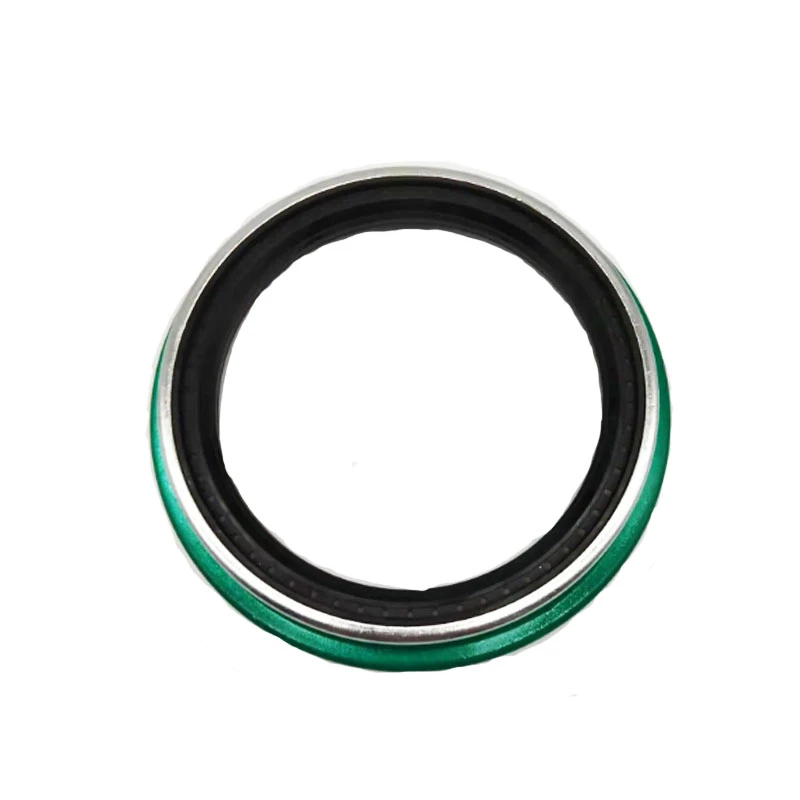PTFE Oil Seal Benefits and Applications for Enhanced Performance and Durability
PTFE Oil Seals A Comprehensive Overview
PTFE (Polytetrafluoroethylene) oil seals are crucial components in various mechanical systems, designed to prevent the leakage of lubricants and contaminants. These seals are widely used in automotive, aerospace, and industrial applications due to their remarkable properties. Understanding the characteristics, benefits, and applications of PTFE oil seals can help in selecting the right seal for specific requirements.
Composition and Properties
PTFE is a synthetic fluoropolymer, famously known by the brand name Teflon. It is renowned for its exceptional chemical resistance, thermal stability, and low friction properties. PTFE oil seals leverage these unique properties, making them ideal for environments that demand durability and reliability. The seals are engineered to withstand extreme temperatures, typically ranging from -100°F to +500°F (-73°C to 260°C), without degrading or losing functionality.
The surface of PTFE is highly non-stick, which reduces friction between the seal and the rotating shaft. This quality not only increases the lifespan of both the seal and the shaft but also enhances the overall efficiency of the system by minimizing energy loss due to friction. Moreover, PTFE has excellent resistance to a wide range of chemicals, including acids, bases, and solvents, making it suitable for use in corrosive environments.
Benefits of PTFE Oil Seals
1. Longevity The durability of PTFE oil seals significantly extends the service life of machinery. Their resistance to wear and tear minimizes the need for frequent replacements and maintenance.
2. Reduced Friction The low friction characteristics of PTFE help in improving the efficiency of moving parts, which leads to reduced energy consumption and enhanced performance.
ptfe oil seal

3. Versatility PTFE oil seals can be crafted into various shapes and sizes, making them suitable for almost any application, be it rotary or static sealing solutions.
4. Chemical Compatibility Their excellent chemical resistance broadens the range of fluids that PTFE seals can contain, providing versatility in various industries.
5. Temperature Tolerance The ability of PTFE to function effectively across an extensive temperature range means that it can be utilized in both high and low-temperature applications without losing integrity.
Applications
PTFE oil seals are utilized across multiple sectors. In the automotive industry, they are commonly found in engines, transmissions, and differential assemblies, where they play a crucial role in preventing oil leaks. In the aerospace sector, PTFE seals are used in hydraulic systems and fuel systems, where they help ensure safe and efficient operation under high-pressure conditions.
Industrial machinery also frequently employs PTFE oil seals to safeguard against contamination and oil loss, thereby enhancing operational reliability. Furthermore, PTFE seals are increasingly being used in food processing and pharmaceutical industries due to their non-reactive nature.
Conclusion
In conclusion, PTFE oil seals are indispensable components that offer a combination of durability, efficiency, and versatility. Their unique properties make them suitable for a wide range of applications across different industries. When choosing seals for specific applications, understanding the advantages of PTFE can lead to better performance and longevity of machinery, ultimately contributing to increased productivity and cost savings.
-
Simplifying Oil Changes: A Comprehensive Guide to Oil Drain Plugs and Their Variants
News Aug.04,2025
-
Mastering Oil Drain Maintenance: Solutions for Stripped, Worn, and Upgraded Oil Plugs
News Aug.04,2025
-
Fixing Oil Pan Plug Issues: Leaks, Stripped Nuts, and the Right Replacement Solutions
News Aug.04,2025
-
Everything You Need to Know About Oil Drain Plugs: Sizes, Fixes, and Upgrades
News Aug.04,2025
-
Choosing the Right Oil Drain Plug: A Guide to Sizes, Materials, and Drain Innovations
News Aug.04,2025
-
A Complete Guide to Automotive Drain Plugs: Types, Problems, and Innovative Solutions
News Aug.04,2025
-
The Ultimate Guide to Car Repair Kits: Tools and Essentials Every Driver Should Own
News Aug.01,2025
Products categories















